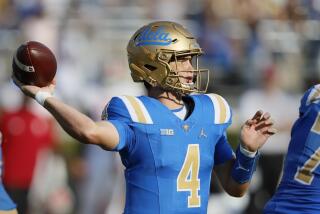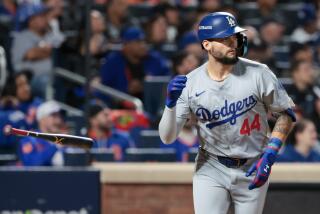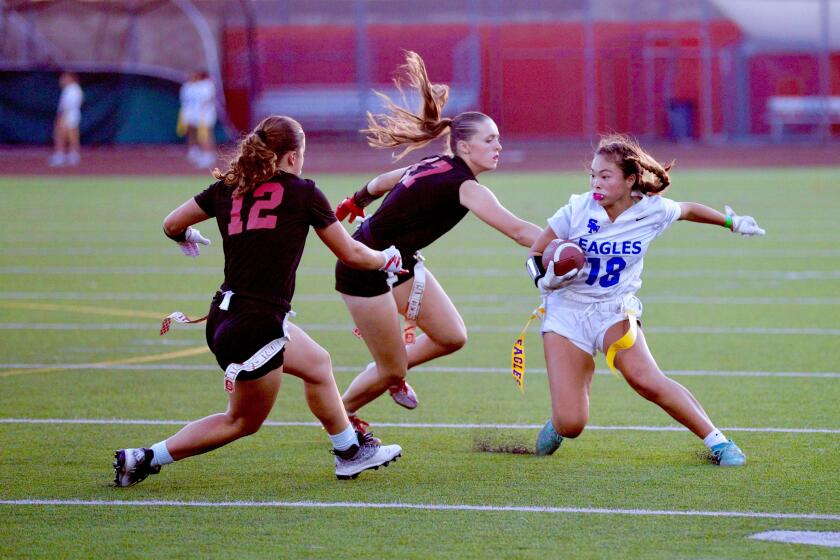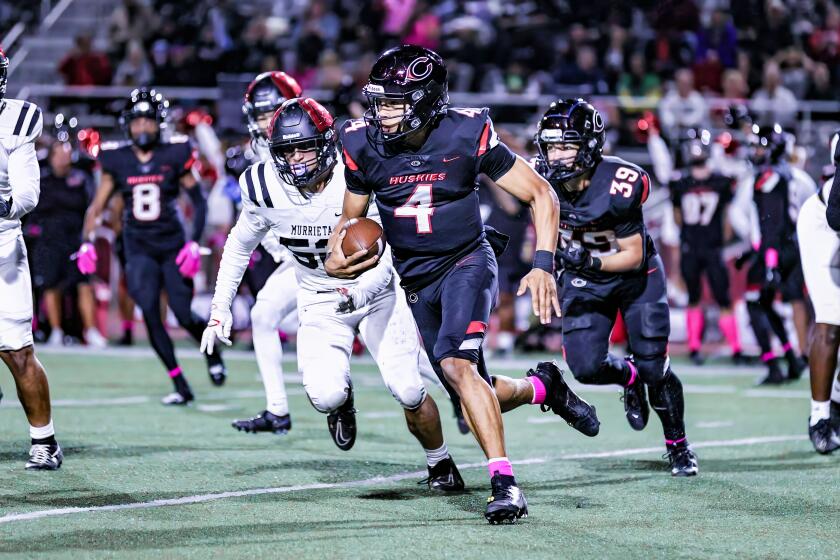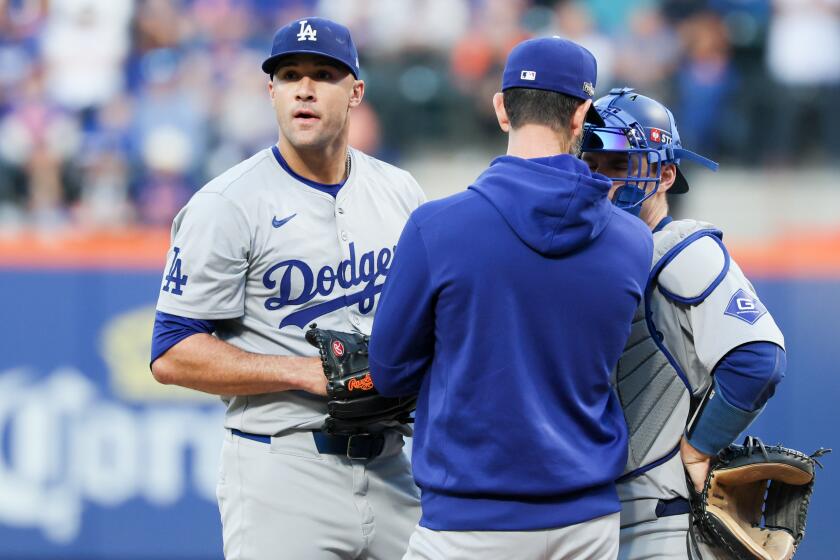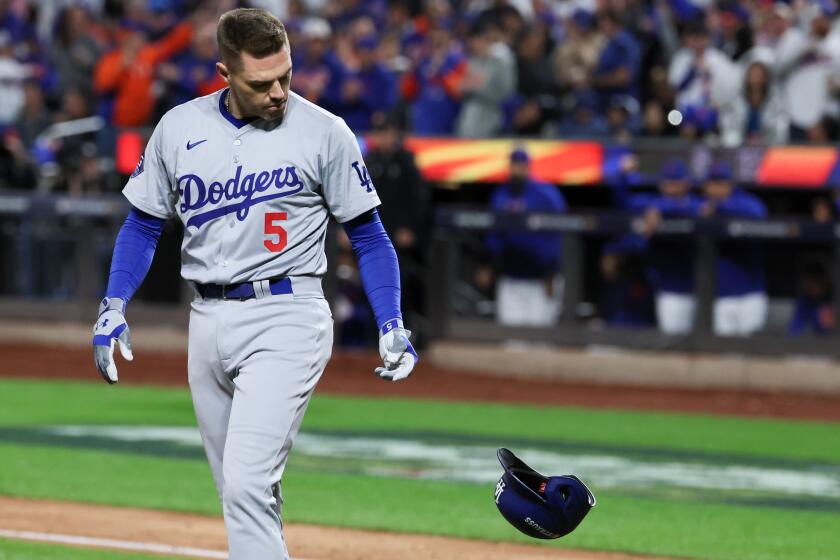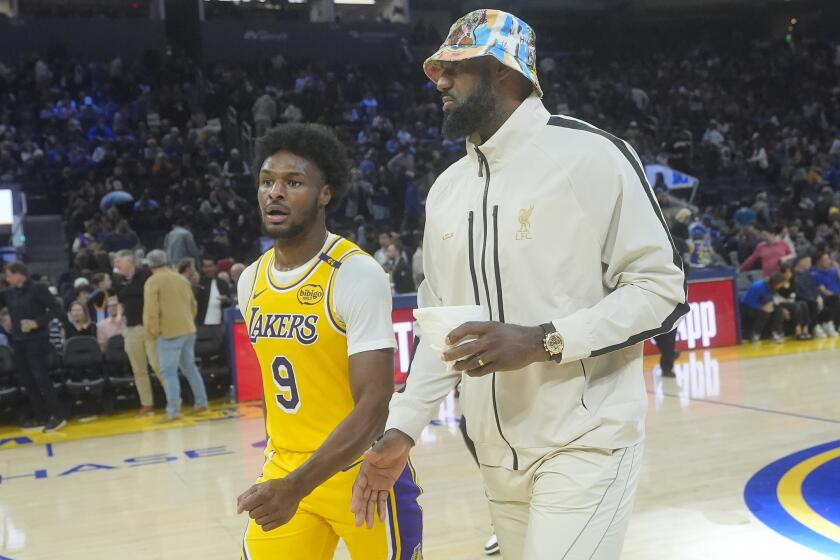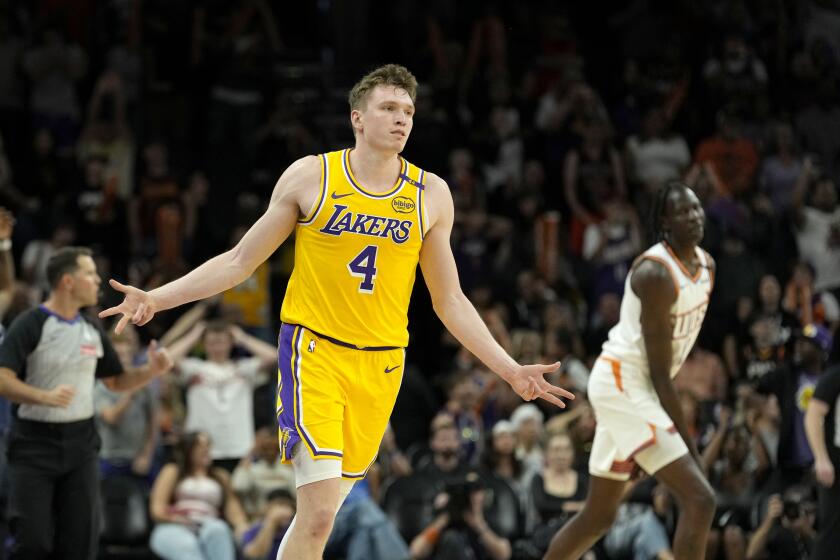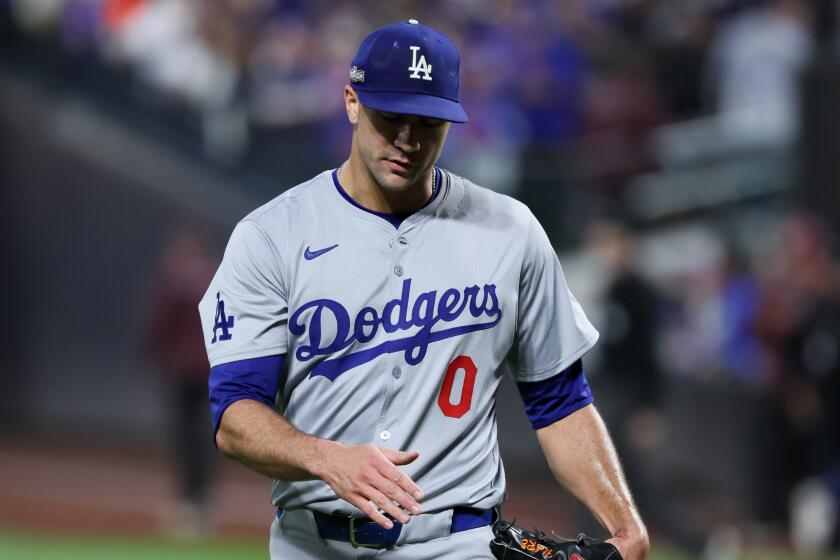Players Vow Readiness for a Long Strike : Baseball: Panic dismissed as talks resume today with a compromise unlikely.
The offices of the owners’ Player Relations Committee and those of the Major League Baseball Players Assn. are only a few blocks apart in midtown Manhattan.
The distance separating the two groups in the stalemated collective bargaining negotiations, however, is as large as the island itself. There also are sizable differences in the groups’ perceptions of whether the owners or players would experience the most economic pressure in a long strike by the players, who are virtually certain to go out after Thursday’s games, observing their Friday deadline.
“If anyone thinks the players will panic after a week or two (on strike), I’ve got some bridges I’ll sell them,” Don Fehr, the union’s executive director, said Tuesday when a negotiating session on non-economic issues was canceled by the PRC.
Instead, attorneys for the groups met to discuss the mechanics of a shutdown, underscoring the likelihood that today’s resumption of talks on the owners’ pivotal salary cap proposal will fail to yield an 11th-hour compromise.
The union remains ideologically opposed to a salary cap.
“We’ll fight it for as long as it takes,” Fehr said again.
The players also remain unconvinced that the industry is experiencing economic problems that would necessitate a compensation system the union contends would destroy free agency and transfer millions of dollars from players to owners, leaving the players to pay back the big-market clubs for agreeing to share revenue with the smaller-market teams.
Insisting again that the owners are merely looking for “cost certainty” and should not have to prove poverty to get it, chief negotiator Richard Ravitch said that not one owner has called “to suggest a modification in our proposal. No one is panicking about the cost of funding a strike. Everyone has a plan. Everyone has credit available. There’s enough (credit left in a $260-million line the clubs opened with a bank consortium in 1992) so that any club having a cash-flow problem could acquire short-term relief.”
The owners, however, would take a big hit from the loss of attendance revenue down the stretch. They also have about $140 million in postseason TV revenue at stake. Nevertheless, Ravitch said the long-term pressure is on the 600-plus players who would be unsigned for 1995, uncertain where they would live and play in 1995 and, it could be added, almost certain to face a new system, unilaterally implemented by the owners if there is no agreement by October.
The players, however, appear well prepared for a battle. With an average salary of $1.2 million, they can’t be compared to a blue-collar union. They have an undefeated labor history and the resources to withstand a long stoppage, including a $175-million strike fund built on licensing revenue over the last four years.
The first checks, Fehr said Tuesday, will be mailed Sept. 15, the date the players would otherwise be receiving their salary checks, if a strike starts Friday. Obviously, the union didn’t pick that date out of the blue.
Fehr said he has never given the players reason to believe a strike would end quickly and that if some owners believe it would end quickly, “they are being pressured by other owners into believing it.”
Ravitch said Tuesday that it would be “a Kafkaesque act of self-immolation” if baseball went through the off-season without an agreement, but Fehr said that to accept a salary cap would be peace at any price, comparing it to Neville Chamberlain’s giving away the Sudetenland to Hitler in 1938.
The rhetoric seemed appropriate. Baseball, too, appears on the verge of another war, this one between the billionaires and millionaires.
More to Read
Go beyond the scoreboard
Get the latest on L.A.'s teams in the daily Sports Report newsletter.
You may occasionally receive promotional content from the Los Angeles Times.

